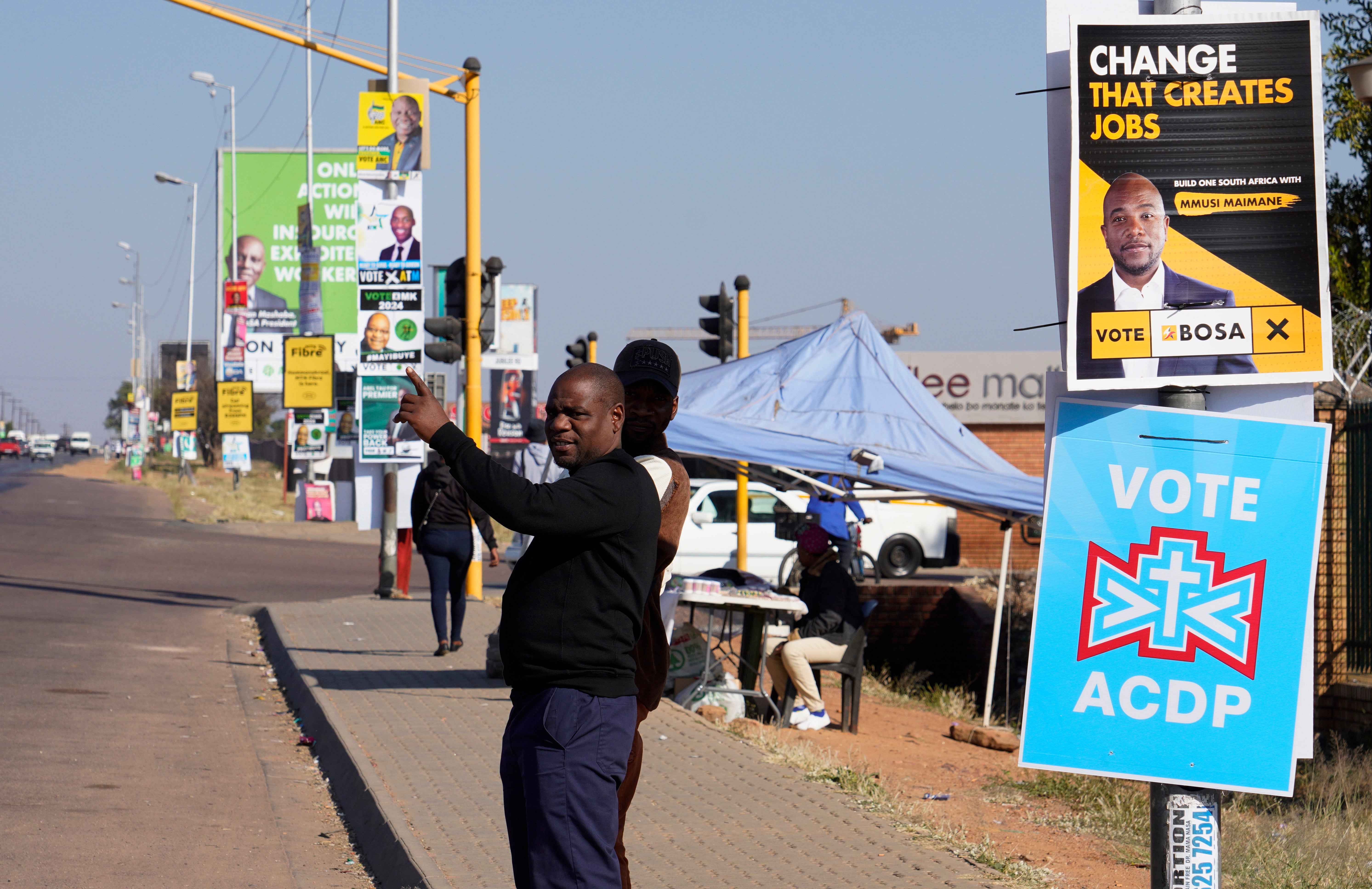Nelson Mandela must be turning in his grave at the state of South Africa
As voters go to the polls in a pivotal election, corruption is rife in the Rainbow Nation and faith in democracy waning, writes Peter Hain. While the ANC struggles to retain its parliamentary majority after three decades of dysfunctional rule, there is one glimmer of hope


Thirty years ago, I returned to the country from which my parents had been unwillingly exiled to witness constitutional apartheid being exorcised.
A British parliamentary observer stationed in Soweto, I marvelled as thousands of black citizens streamed out of a dawn haze to vote: elderly women and young men high-fiving to celebrate South Africa’s first-ever democratic election.
Today, as the country goes to the polls, the mood is very different.
Corruption has spread into every corner of life like cancer in the body; under Jacob Zuma, so toxic during his presidency decade, a fifth of the country’s national wealth was lost in an orgy of looting, money laundering and economic collapse.
Although president Cyril Ramaphosa toppled Zuma’s dynasty, rehabilitated the country’s deliberately perverted prosecution service and recovered its intentionally disabled tax agency, his snail-like changes have massively disappointed.
The African National Congress (ANC) remains deeply corrupt from top to bottom by an “our turn to eat” venality. Millions – especially young people – have given up hope with the economy stalled, daily power cuts ubiquitous, water maintenance neglected, the postal service terminated and local public services paralysed.
Two-thirds of the country say they’d prefer authoritarianism, according to a recent survey. What an indictment of Nelson Mandela’s rainbow nation.
He must be turning in his grave, with his cherished ANC likely to suffer a deserved loss in voter support.
But the change genie is out of the bottle, with 52 parties on the ballot paper signalling a huge demand for new leadership. Most impressive of the start-up parties is Rise Mzansi, whose youthful core is made up of natural but totally disillusioned ANC followers, its leader Songezo Zibi head-and-shoulders above the pack with a social democratic agenda the country cries out for: its vote will be small but its potency huge.
If not at this election, South Africa could still rise from the ashes of corruption and disillusionment. That its democracy has endured for three decades is an amazing achievement, given the brutal legacy of apartheid: ruthless oppression, mass unemployment and poverty.
South Africa has possibly the finest constitution in the world, free elections, an independent judiciary, a strong civil society, a fearlessly investigative though under-resourced media and vigorously independent opposition parties.
All positives other countries right across the world cry out for and to be set against mafia-like crime and dysfunctional government at all levels which encourages white racists and right-wingers to sneer: “I told you so.”
Perhaps former activists like me who marvelled 30 years ago at the dramatic change we fought for – against a seemingly omnipotent apartheid state – were expecting too much, too soon.
The abiding lesson is that democracy is a fragile flower that needs constantly to be nurtured and fought for against powerful forces of economic elitism and greed.
That is as true today for Britain and the US as it is for South Africa. Reactionary forces may have got the upper hand in the country of my childhood, but the popular surge for change shows that their time is waning.
The victims of apartheid deserve nothing less: an economy growing, not contracting or stalled; new jobs that allow all to put a roof over their heads and have food on the table.
Above all, politicians who put the people first, rather than their factional or private interests – as that inspirational generation of leaders like Nelson Mandela, Oliver Tambo, Lungi Sisulu and Desmond Tutu once did.
Lord Hain is a former anti-apartheid campaigner and Labour cabinet minister. His new thriller set in South Africa, ‘The Lion Conspiracy’, is published by Muswell Press and available here
Join our commenting forum
Join thought-provoking conversations, follow other Independent readers and see their replies
Comments
Bookmark popover
Removed from bookmarks